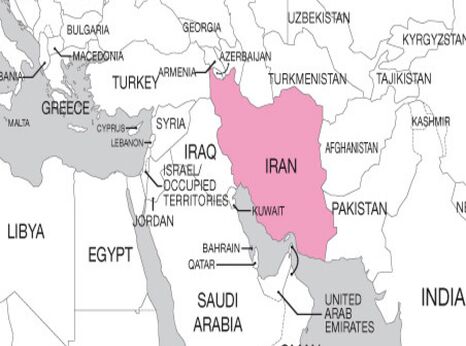Iran: Ill-treated for seeking truth and justice

The punitive transfer of Maryam Akbari Monfared to Semnan prison is part of a broader distressing trend, documented by the UN Special Rapporteur on the situation of human rights in Iran, which has involved “the transfer of human rights defenders to distant prisons far from their families as a punishment.” In his 16 July 2021 report, the Special Rapporteur noted with concern that human rights defenders “Sepideh Qoliyan and Atena Daemi were transferred from the women’s ward in Evin Prison to remote prisons in Bushehr and Gilan Provinces on 10 and 16 March 2020, respectively… Golrokh Iraee was transferred from Qarchak Prison to Amol prison on 24 January 2021.”
Maryam Akbari Monfared has been imprisoned since December 2009 and has served 12 of her 15- year prison sentence for “enmity against God” (moharebeh) imposed solely because she had made phone calls to her relatives, who are members of the People’s Mojahedin Organization of Iran (PMOI), and had visited them once in Iraq. The PMOI is a banned opposition group outside Iran that advocates the overthrow of the Islamic Republic system. Her conviction and sentence were issued by Branch 15 of the Revolutionary Court in Tehran in May 2010 after a grossly unfair trial which, according to an informed source, lasted less than 15 minutes. She was held in solitary confinement for 43 days after her arbitrary arrest on 19 December 2009 and subsequently subjected to enforced disappearance for five months. She was denied access to a lawyer during the investigation stage and met her state-appointed lawyer for the first time at her trial. Her husband has said that during her trial session, the judge told her she was “paying” for the activities of her relatives with the POMI. Branch 33 of the Supreme Court upheld the conviction and sentence in August 2010. Maryam Akbari Monfared’s subsequent requests for retrial were denied.
Maryam Akbari Monfared submitted a complaint to the office of the prosecutor in Tehran from inside prison on 14 October 2016. The complaint concerns the extrajudicial execution and enforced disappearance in 1988 of her sister Roghayeh Akbari Monfared and her brother Abdolreza Akbari Monfared, who was 17 years old at the time of his arrest in 1980. In her complaint, she requested “an official investigation into the extrajudicial execution of her siblings” and sought “detailed information about the executions including the location of the mass graves, and the identity of the perpetrators.” To date, the authorities have not processed her complaint. Instead, they have subjected her to reprisals.
In its 2018 report Blood-soaked secrets: Why Iran’s 1988 prison massacres are ongoing crimes against humanity, Amnesty International concluded that, in addition to committing the crime against humanity of murder in 1988 by extrajudicially executing thousands of political dissidents in secret, the Iranian authorities are committing the ongoing crimes against humanity of enforced disappearance, persecution, torture and other inhumane acts, including by systematically concealing the fate of the victims and the whereabouts of their remains. A group of UN experts also stated in a September 2020 communication that past and ongoing violations related to prison massacres in 1988 “may amount to crimes against humanity” and stated that should Iran “continue to refuse to uphold its obligations under international law, we call on the international community to take action … through the establishment of an international investigation.”
The rise to presidency of Ebrahim Raisi who must be investigated for past and ongoing crimes against humanity related to the mass enforced disappearances and extrajudicial executions of 1988 is a grim manifestation of the systemic impunity that prevails in the country. Amnesty International has called on the UN Human Rights Council to take concrete steps to address the crisis of impunity in Iran including by establishing an impartial and independent mechanism, complementary to the work of the Special Rapporteur on the situation of human rights in Iran, to collect, consolidate, preserve, and analyse evidence of the most serious crimes under international law committed in Iran, in a manner that meets general standards of admissibility in criminal proceedings, in order to facilitate future fair and independent criminal proceedings.